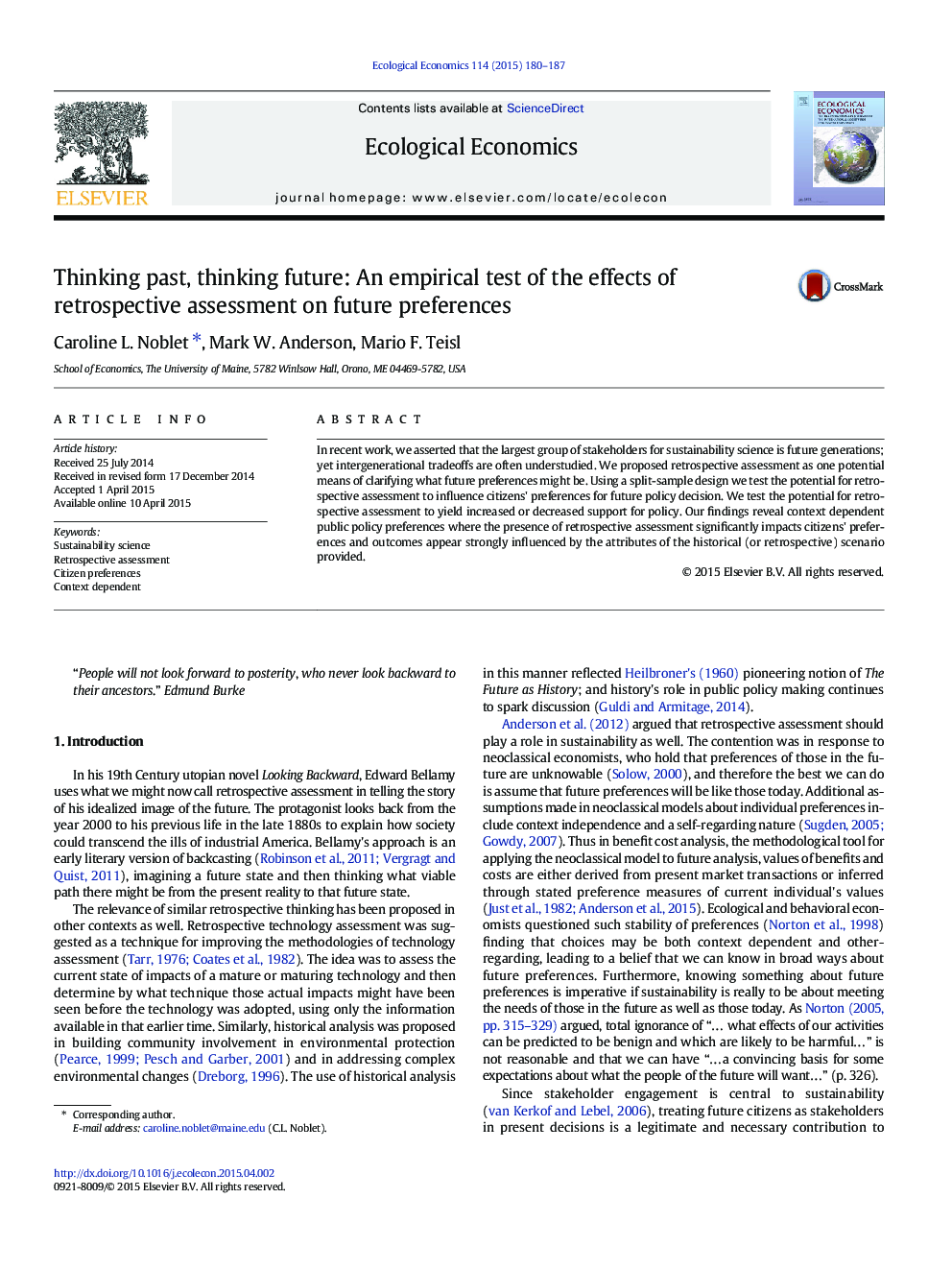| Article ID | Journal | Published Year | Pages | File Type |
|---|---|---|---|---|
| 5049334 | Ecological Economics | 2015 | 8 Pages |
In recent work, we asserted that the largest group of stakeholders for sustainability science is future generations; yet intergenerational tradeoffs are often understudied. We proposed retrospective assessment as one potential means of clarifying what future preferences might be. Using a split-sample design we test the potential for retrospective assessment to influence citizens' preferences for future policy decision. We test the potential for retrospective assessment to yield increased or decreased support for policy. Our findings reveal context dependent public policy preferences where the presence of retrospective assessment significantly impacts citizens' preferences and outcomes appear strongly influenced by the attributes of the historical (or retrospective) scenario provided.
